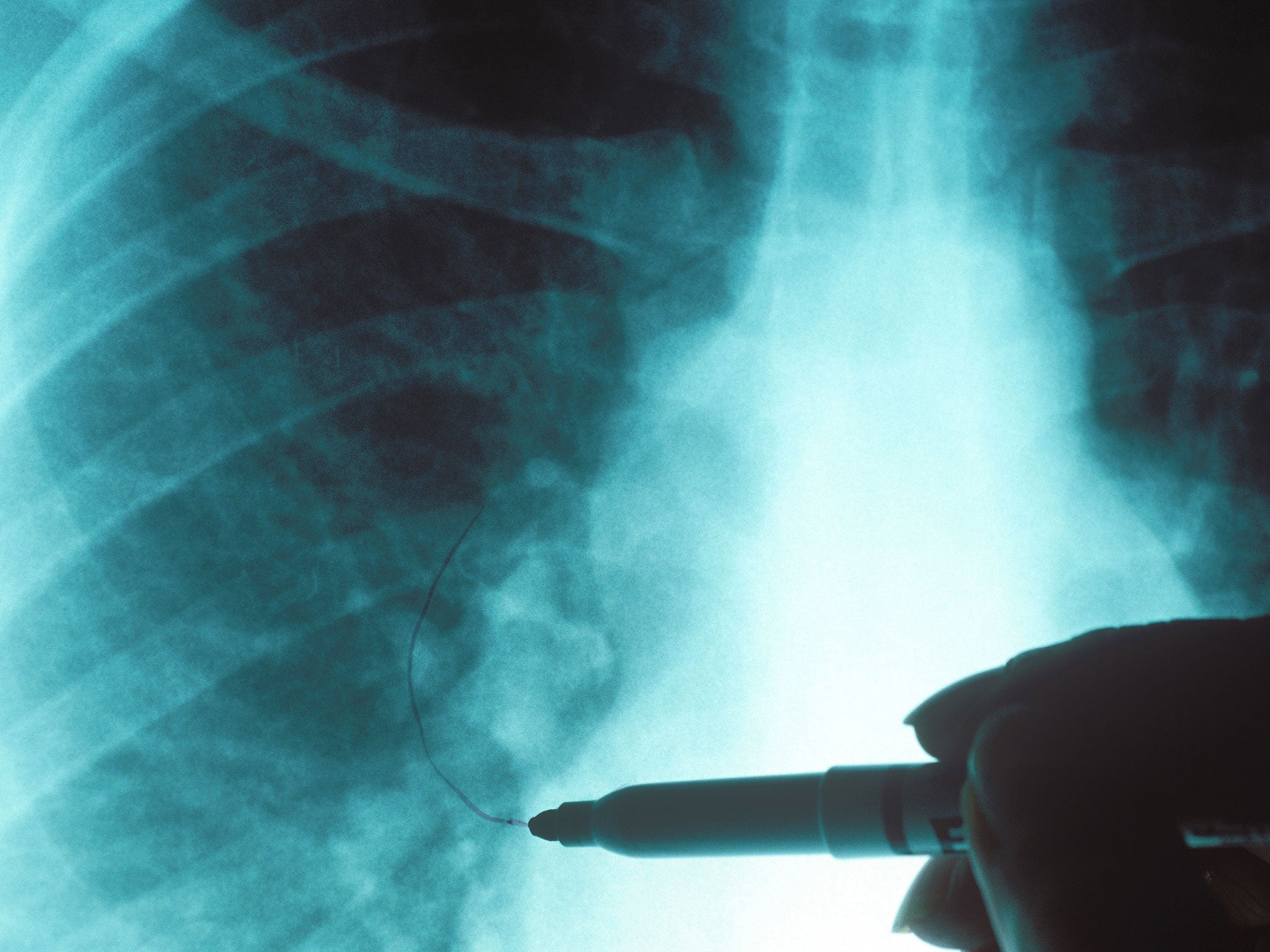Cancer scientists find way to halt spread of the disease by making cells 'literally get stuck'
'Through the microscope, you can see the cell wobbling, trying to move, to put out new protrusions, to migrate, but it can't'

Scientists have discovered that existing drugs can make cancer cells “literally just get stuck”, preventing them from spreading throughout the body.
Normally on the move constantly, cancer cells quickly run out of nutrients and oxygen amid the crush of a rapidly growing tumour.
This means they are forced to leave the tumour to invade different parts of the body or die. About 90 per cent of the human deaths from the disease occur after cancer spreads to other parts of the body.
Researchers funded by the US National Cancer Institute have now found a key part of the process that enables the cells to move and managed to disrupt it in laboratory tests.
When the treated cancer cells were injected into the breasts of female mice, they grew into large tumours but did not spread to the lungs, liver or bone.
Team leader Professor Kay MacLeod, of the Ben May Department for Cancer Research at Chicago University, said the researchers had decided to find out what would happen if they stopped a process called autophagy in cancer cells.
Autophagy plays a housekeeping role in healthy cells, clearing out damaged material and misshapen proteins, eliminating pathogens and helping to defend against cancer.

But when genes associated with autophagy were knocked out in the cancer cells, it prevented them from moving.
“They literally just get stuck. Through the microscope, you can see the cell wobbling, trying to move, to put out new protrusions, to migrate,” she said. “But it can't.”
Cancer cells move by pushing protein “adhesions” through the front, sticking onto something outside and then pulling itself forward, the researchers found.
After the cell has gone past an adhesion, the protein is disassembled and broken down by autophagy. But if that process is disrupted, the rear adhesion remains attached.
“It is stuck, unable to dissolve the adhesions at the back end of the cell,” Professor MacLeod said.
“Basically, autophagy-deficient tumour cells cannot migrate and as a result cannot travel to another location. This is why we think that inhibiting autophagy could block tumour metastasis.”
She added that their work suggested that inhibiting autophagy could be “an effective approach” to stopping the spread of cancer, or metastasis, in human patients.
A paper about the results of the study in the journal Cell Reports noted there were already drugs capable of disrupting autophagy.
One of them, hydroxychloroquine, is currently used in the UK to treat rheumatoid arthritis, malaria and other conditions. It is also being tested in clinical trials as a way to slow the growth of tumours.
“But it is not being specifically evaluated as a way to prevent metastasis,” Professor MacLeod said.
“We think that’s where this approach of inhibiting autophagy will be most useful as an anticancer measure.”
Nell Barrie, Cancer Research UK’s senior science information manager, said cancer was “much harder to treat” once it had spread from the initial tumour.
“So understanding how cancer cells are able to move around the body is a crucial area of research,” she added.
“This study suggests that existing drugs might be able to stop a ‘recycling’ process inside cancer cells that helps them to move.
“It’s an interesting approach that’s in its very early stages and will need to be tested further in the lab and in clinical trials before we know if it could help tackle cancer spread in patients.”
Join our commenting forum
Join thought-provoking conversations, follow other Independent readers and see their replies
Comments
Bookmark popover
Removed from bookmarks